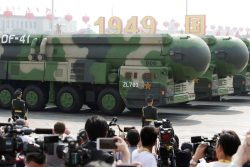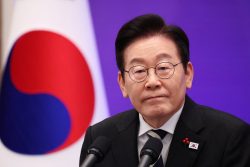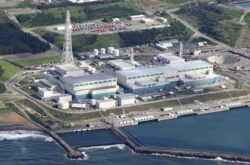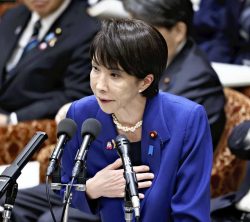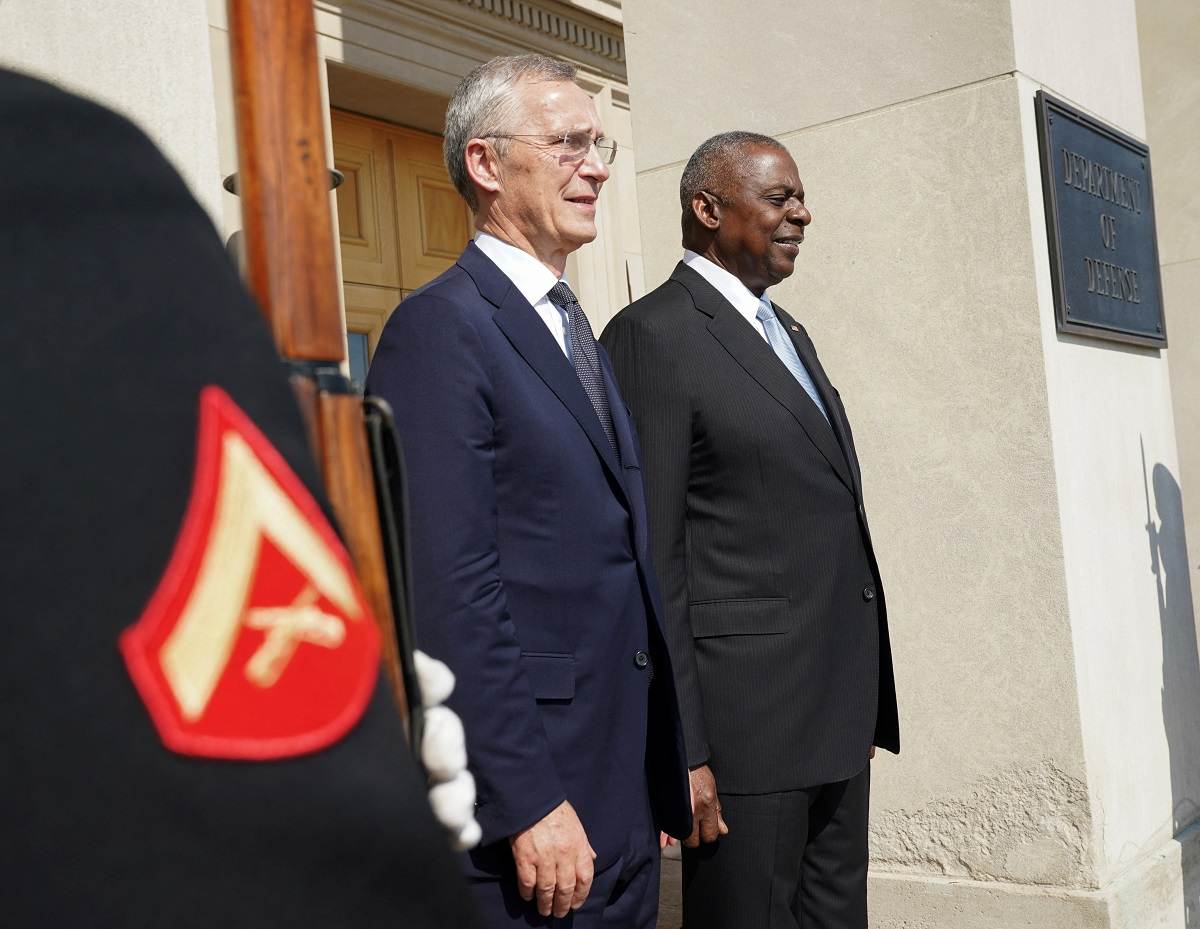
U.S. Secretary of Defense Lloyd Austin meets NATO Secretary-General Jens Stoltenberg at the Pentagon in Washington, U.S., July 8, 2024.
11:34 JST, July 9, 2024
WASHINGTON (Reuters) – Leaders of NATO’s 32 member countries meet this week in Washington for a summit of the transatlantic security alliance, with further support for Ukraine in the war against Russia’s invasion high on their agenda.
Here is what Ukrainian President Volodymyr Zelenskiy – who has been invited to attend the summit – can expect from the July 9-11 gathering, according to NATO officials and diplomats.
WILL NATO INVITE UKRAINE TO BECOME A MEMBER AT THE SUMMIT?
No. NATO takes decisions by consensus and there is no agreement among its 32 members to extend an invitation while Ukraine is at war. However, many NATO members – particularly those from Eastern Europe – want to signal that Kyiv is moving closer to membership.
At a summit in Vilnius, Lithuania, last year, NATO leaders declared that “Ukraine’s future is in NATO” and reaffirmed their commitment to a statement in Bucharest in 2008 that Kyiv would join the alliance.
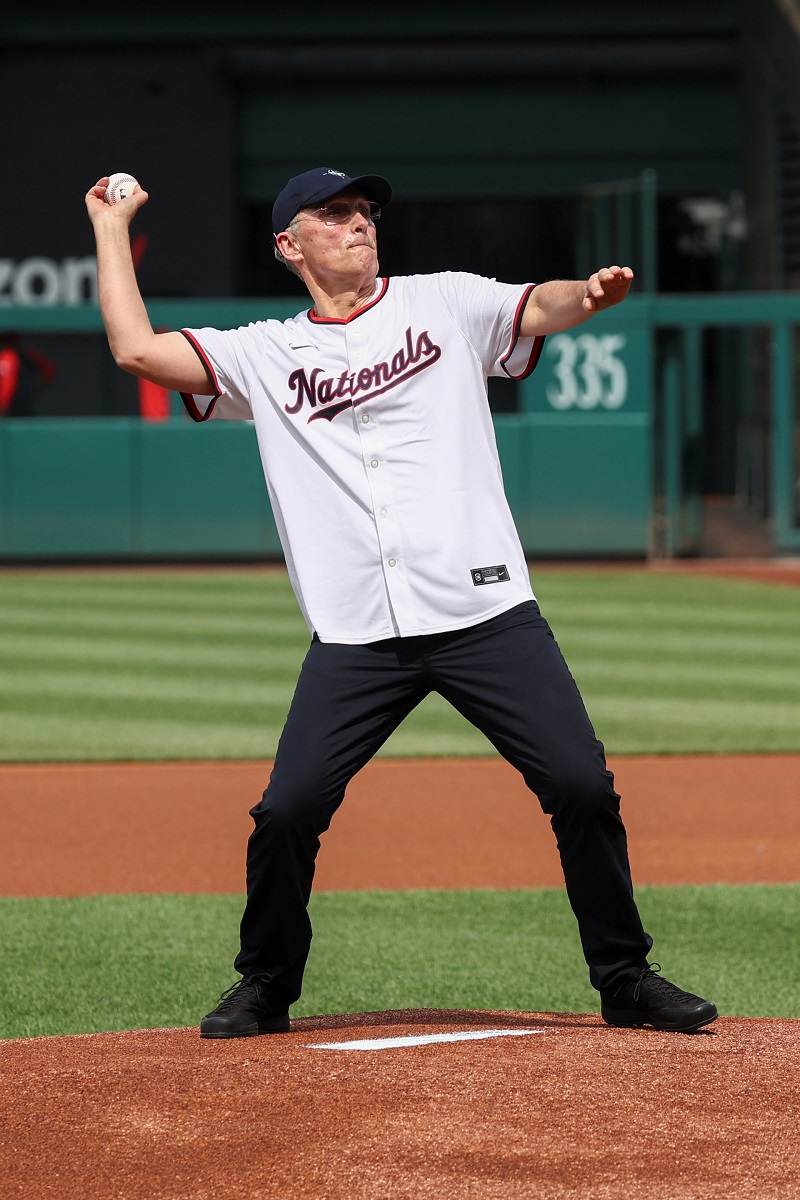
NATO Secretary-General Jens Stoltenberg throws the ceremonial first pitch to celebrate “NATO day” before the start of the game between the Washington Nationals and the St. Louis Cardinals at Nationals Park in Washington, U.S., July 8, 2024.
This year, many NATO countries want to state that Ukraine’s path to membership is “irreversible.” But alliance members are still wrangling over the summit declaration, including over how much to emphasize that Ukraine has to complete reforms, such as crackdowns on corruption, before it could join.
Diplomats say the United States and Germany are among the countries most wary of going further on membership at this stage. If Ukraine joins NATO, other members would be obliged to come to its assistance if it was attacked by Russia, under the alliance’s Article 5 mutual defense clause.
In an interview with Time magazine published last month, U.S. President Joe Biden said peace in Ukraine would mean making sure Russia could never attack the country again. But, he said, “it doesn’t mean NATO, they are part of NATO” – dampening Ukraine’s hopes of entering the alliance any time soon. He also noted he had previously said he was not “prepared to support the NATOization of Ukraine.”
However, officials say NATO will unveil a package of measures at the summit to help Ukraine, which it will present as a “bridge to membership.”
WHAT WILL BE IN THE PACKAGE?
It will include a pledge of continued financial support and a move by NATO to take over the coordination of arms supplies and training of Ukraine’s forces.
NATO as an organization does not supply arms to Ukraine directly but many of its members are among Kyiv’s biggest weapons providers. The United States, possibly joined by other allies, is expected to announce more weapons for Ukraine at the summit, including Patriot air defense systems.
WHAT WILL THE FINANCIAL PLEDGE BE?
Leaders are expected to endorse an agreement struck between NATO allies last week to provide 40 billion euros of military aid to Ukraine in the coming year, two Western European diplomats told Reuters.
The alliance says this matches the amount given annually since Russia’s 2022 invasion. The pact includes a provision to re-evaluate allied contributions at future NATO summits, according to one of the diplomats.
NATO members “will aim to meet this pledge through proportionate contributions,” the agreement said.
NATO Secretary-General Jens Stoltenberg had suggested a five-year commitment of 100 billion euros. But multiple allies objected, saying their budget rules did not allow such a long-term commitment or that they could not pledge on behalf of future governments.
WHAT WILL NATO COORDINATE?
The alliance has agreed to take over much of the coordination of arms deliveries from the U.S.-led Ukraine Defense Contact Group, an ad-hoc coalition of some 50 nations, also called the Ramstein group, named after a U.S. air base in Germany where it first met.
This gives NATO a more direct role in the war against Russia’s invasion while stopping well short of committing its own forces.
The alliance will also coordinate the training of Ukrainian forces, much of which is done by the European Union and Britain.
Some diplomats see the move as a way to guard against any attempt by Donald Trump – if he wins November’s U.S. presidential election – to stop military aid for Ukraine.
By putting coordination under a NATO umbrella, alliance military staff have more autonomy to get on with the job without direct political involvement.
But this would have a limited effect, as the U.S. is NATO’s dominant power and provides the majority of weaponry to Ukraine. So if Washington wanted to slash Western aid to Kyiv, it would still be able to do so.
Stoltenberg has said the effort will be run from a U.S. base in Wiesbaden, Germany, commanded by a three-star general and involve nearly 700 personnel.
Hungarian Prime Minister Viktor Orban, who has maintained close ties to Russia, has secured an opt-out from the initiative.
Its name has also been contentious. Germany objected to it being called a “mission,” arguing this could be seen as implying NATO will send troops to Ukraine.
It is currently known as NATO Security Assistance and Training for Ukraine, or NSATU for short.
"News Services" POPULAR ARTICLE
-

American Playwright Jeremy O. Harris Arrested in Japan on Alleged Drug Smuggling
-

Japan’s Nikkei Stock Average as JGB Yields, Yen Rise on Rate-Hike Bets
-

Japan’s Nikkei Stock Average Licks Wounds after Selloff Sparked by BOJ Hike Bets (UPDATE 1)
-

Japan’s Nikkei Stock Average Buoyed by Stable Yen; SoftBank’s Slide Caps Gains (UPDATE 1)
-

Japanese Bond Yields Zoom, Stocks Slide as Rate Hike Looms
JN ACCESS RANKING
-

Tokyo Economic Security Forum to Hold Inaugural Meeting Amid Tense Global Environment
-

Keidanren Chairman Yoshinobu Tsutsui Visits Kashiwazaki-Kariwa Nuclear Power Plant; Inspects New Emergency Safety System
-

Imports of Rare Earths from China Facing Delays, May Be Caused by Deterioration of Japan-China Relations
-

University of Tokyo Professor Discusses Japanese Economic Security in Interview Ahead of Forum
-

Japan Pulls out of Vietnam Nuclear Project, Complicating Hanoi’s Power Plans




